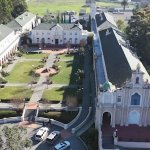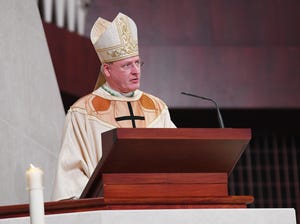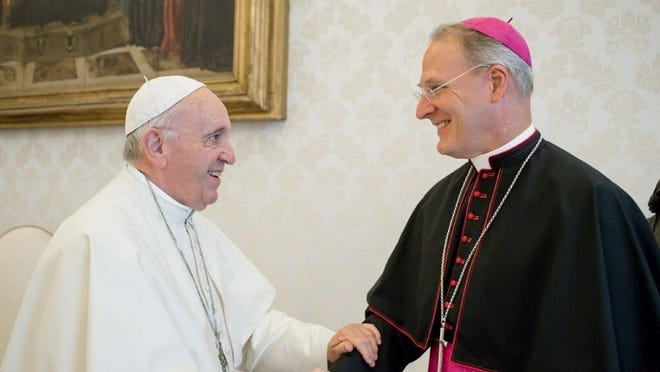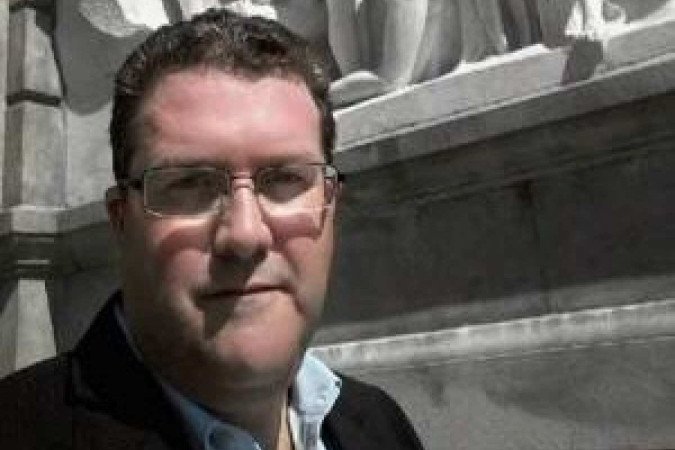The findings come amid an ongoing NBC Bay Area investigation into a flood of new child sex abuse claims hitting Catholic institutions across the state. The civil lawsuits are the result of a 2019 California law that opened a three-year “lookback” window allowing new child sex abuse lawsuits based on claims typically barred by the statute of limitations.
Click here to watch Part 1 of NBC Bay Area's investigation.
Among the hundreds of new Northern California legal filings are startling accusations against four Bay Area priests who still work in the region. The dioceses they serve told NBC Bay Area internal reviews did not substantiate the claims against the men, and it would be unjust to keep them out of ministry.
Dan McNevin, a local leader for the victim advocacy group SNAP (Survivors Network of those Abused by Priests), said he's skeptical of such internal diocesan reviews.
“The bishops have an obligation to sideline these people,” McNevin said. “Not only for the victim, who is courageous, but because the bishop is on notice that this priest might be dangerous.”
Three of the accused priests – Fr. David Ghiorso, Msgr. Michael Harriman, and Fr. Michael Mahoney – work under the Archdiocese of San Francisco. Either directly or through their attorneys, all three priests refuted the allegations against them.
The other priest – Rev. James Pulskamp – is the pastor of Santa Rosa’s Star of the Valley Catholic Church. Pulskamp did not respond to NBC Bay Area’s request for comment, but Santa Rosa Bishop Robert Vasa said in a statement he finds it difficult to give the allegation any credence given the priest’s stellar reputation over the past 50 years.
With one exception, the allegations against the priests are linked to two centers founded as homes for vulnerable children who were removed from troubled households: St. Vincent’s School for Boys in San Rafael and the Hanna Boys Center in Sonoma.

The claims relate to events occurring across nearly two decades, from the mid-1970s through the early 1990s. If true, the decades-old accusations expand what we know about Northern California’s clergy abuse scandal and suggest that internal lists of “credibly accused” priests released by most Bay Area dioceses in recent years are still incomplete.
The plaintiffs making the accusations have so-far declined to be interviewed, but the lawsuits, and in some cases, their attorneys, detail the allegations.
Rev. James Pulskamp & Hanna Boys Center
The oldest accusation targets Rev. Pulskamp during his time as a priest at the Hanna Boys Center. The school and residential treatment center for vulnerable children has been a hotspot for child sexual abuse accusations in recent years.
Pulskamp is accused in a new lawsuit of molesting a child there in the 1970s.
“Because [the children there] are more vulnerable, they become prey for priests and people who work there,” said Mary Alexander, a Bay Area attorney who filed the lawsuit on behalf of an unnamed plaintiff. “So, it is something that we see all the time.”
While Pulskamp now serves as the pastor of his Santa Rosa church, he’s listed as a Regent Emeritus on the Hanna Boys Center’s website.
Bishop Vasa said Pulskamp remains in ministry after an internal review board recommended no action be taken against the priest. However, the Bishop said the diocese will continue to investigate any new details that emerge.
Alexander said Pulskamp and any other priests facing new abuse accusations shouldn’t be working until more information comes out through the legal process.
“I think that any priest who is still active and is accused, that he should be put on administrative leave, that there should be no access to children,” Alexander said.
 Mark Hicks
Mark Hicks









